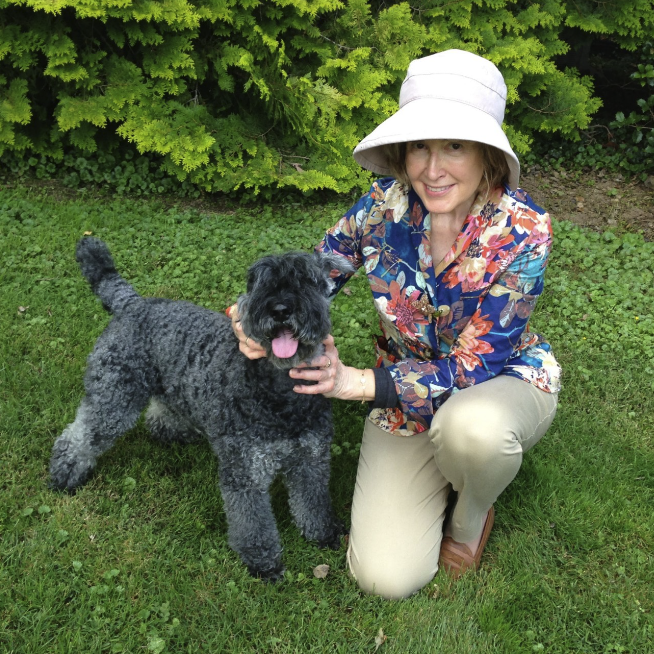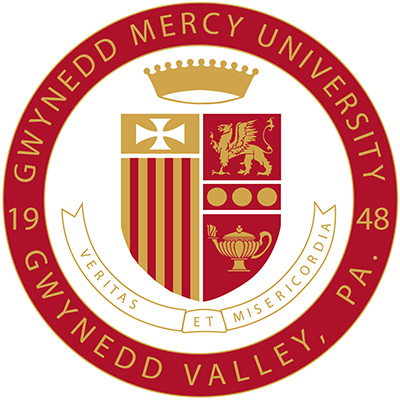Why I Give: Rosemary Maloney ’72
 Retired nurse and nurse educator Rosemary Maloney ’72 PhD, CRNP, ANCC, MA, MSN was inspired by many of the Sisters who taught her at Gwynedd-Mercy College and advocated for her, beginning with Sister Fenton Joseph. It was Sister Fenton Joseph who enrolled Rosemary at GMercyU and played a key role in Rosemary earning her first graduate degree at no cost.
Retired nurse and nurse educator Rosemary Maloney ’72 PhD, CRNP, ANCC, MA, MSN was inspired by many of the Sisters who taught her at Gwynedd-Mercy College and advocated for her, beginning with Sister Fenton Joseph. It was Sister Fenton Joseph who enrolled Rosemary at GMercyU and played a key role in Rosemary earning her first graduate degree at no cost.
“She was a nurse all her life. She was a very practical lady, which I guess I identified with,” Rosemary said of Sister Fenton. “In Irish homes at the time, we had to be very practical.” A long-time supporter of the University, Rosemary created The Michael John Maloney Johnson Nursing Scholarship more than 20 years ago to provide financial assistance to students in the Frances M. Maguire College of Nursing and Health Professions.
Journey in Higher Education
As a teenager, Rosemary had a weekend job at Temple Hospital. There, she inquired about becoming a nurse and was urged to reach out to Gwynedd. Rosemary was enrolled by Sister Fenton Joseph and began her studies at Gwynedd-Mercy College in 1968 at a time when it was unusual for women to attend college. Raised in West Philadelphia in an Irish-American family, it was the pragmatic thing to do. “My mother [a widow] was first-generation, and she had to work,” Sister Rosemary explained.
To save money, Rosemary commuted to school instead of living on campus. She also worked at Misericordia Hospital (now called Mercy Hospital of Philadelphia) every weekend. After graduating with her Bachelor of Science in Nursing degree in 1972, she and her sister took advantage of cheap airfare at the time and traveled to Southeast Asia. When she returned home, Sister Fenton called her about a government-funded nursing trainee-ship.
“It paid for your education, a living stipend, and your book money. So I went,” she said. “It was with the University of Pennsylvania, sponsored by the U.S. government because they needed nurses so badly then – Vietnam was still going on. I would not have received graduate study without it, to be honest.”
Rosemary earned her master’s degree in nursing from UPenn in 1974 while working three nights a week. She taught nursing at Hahnemann University from 1974 to 1977, and from 1977 to 1980, she worked for the U.S. Army Nurse Corps, stationed in Hawaii, to help with the winding down of the Vietnam War. “We took care of a lot of wounded soldiers,” she said. “I saw a lot. It was a very educative experience.”
Over the next two decades, Rosemary cared for her disabled son and worked as a nurse in various settings, from hospice to the Chester County Health Department to serving as a counselor/nurse for dual-diagnosed patients. She also taught gerontology and humanistic nursing to undergraduate students at Immaculata University. Eventually, she earned a master’s degree in clinical psychology from Immaculata in 1991.
In 2005, Rosemary began a doctoral program, where she applied phenomenology (the study of a person’s life experience) into the nursing role to explore how nursing can impact humanistic care. It was a subject she’d been wanting to research. In 2009, she presented her dissertation, Levinas’ Concept of Alterity, Respect for the Other in a Healthcare Encounter, at the International Human Science Research Conference in Norway and at Trinity College in Dublin, Ireland.
Rosemary described her doctoral degree as a luxury, yet she believes learning is a lifelong pursuit.
If we don’t educate, we might as well go back to the caves. We need to advance in a moralistic way, and people need to be educated in a disciplined matter.
That same decade, Rosemary embarked on numerous other educational pursuits, from studying pharmacology to Reiki training to attending a Buddhist Retreat on Mindfulness in Santa Barbara, Ca. She also volunteered multiple times in Guyana, South America to teach at their Mercy School of Nursing (read more about this below).
Investing in Future Mercy Caregivers
The Michael John Maloney Johnson Nursing Scholarship
Since Rosemary began her career in the 1970s, times have changed. Many local hospitals are now owned by large corporations, reinforcing the notion that healthcare is a business. It makes a GMercyU education — one that produces compassionate caregivers with outstanding skills — all the more important, especially to someone like Rosemary, who has dedicated much of her career to studying the relationship between caregiver and patients.“The field of nursing has changed tremendously. I’ve seen it first-hand,” Rosemary said of her experiences as a patient and those of her peers, who don’t always receive the quality of care that they would’ve provided. “Conscientious nurses have to know the plan of care and take it seriously.”
The exception? A recent GMercyU nursing graduate who cared for Rosemary at Bryn Mawr Hospital.
“She was exceptional, she stood out as an exemplary star,” Rosemary said.
In 2001, Rosemary created the Michael John Maloney Johnson Nursing Scholarship, named after her beloved late son.
The scholarship supports students in the Frances M. Maguire College of Nursing and Health Professions, students who are learning the skills, values, and ethical compass to become the next generation of compassionate, pragmatic, and gifted caregivers in the Mercy tradition.
Gwynedd Mercy Experience, Circa 1970
By Rosemary Maloney ’72
When asked to write thoughts on my nursing education 1968-1972, my initial mindset was to excuse such responsibility as “remembrance lost.”Aging baby boomers reminisce of nuns prepared in specific areas of expertise. These memories are sustenance for life's throes and tumults — personally and professionally.
Memorably, Sister Fenton Joseph, RSM headed nursing's progress from hospital (diploma) training to collegiate status. Her humanistic and physiologic foci were on “care” of the patient concomitant with “cure” of the patient. Healthcare was centered on expertise of practice: Life is a sincerity.
Sister Mary Paul, RSM presented science courses centered on pertinence to nursing: Biology, microbiology, anatomy, and physiology. Special emphasis was centered on nursing's parallel status with medicine and allied health specialties.
Sister Mary Barbara, RSM held humanistic tenets toward each human being's biological-spiritual value in her obstetric didactic courses and clinical applications.
Sister Mary Esmonde, RSM was physician "par excellence" in applying physiology toward competent diagnosis and treatment of patient presentations.
Lay faculty complemented the curricula with nutrition, social science, and public health foci.
The crux of healthcare is underscored by sacrifice: a generosity, an endeavor-oriented toward the other. Thus, health-oriented professions infer therapeutic-ethical inspiration and impetus.
After 48 years of experience in varied healthcare positions and settings, one can discern “change” is imperative — seeking outcomes in which patient and practitioner are honored in ethical surrounds. Ideally, Mercy education would be exemplar toward awareness and realization of humanistic caring.
Perhaps other Gwynedd Mercy University nurses also experienced foreign service.
My foreign service was as volunteer at Mercy Hospital, Georgetown, Guyana, South America in 2005 and 2010. This exposure as an American nurse who has accessible supplies, medications was startling to one who now needed to improvise remedies from herbs and dressings from boiled linens. Tragically, routine cardiac, antibiotic, other life-sustaining drugs and medical supplies were sold on the black market from foreign aid ships. Sadly, patient care for those with no power was/is not priority of corrupt political regimes!
Give Today Ways to Give Contact Us
